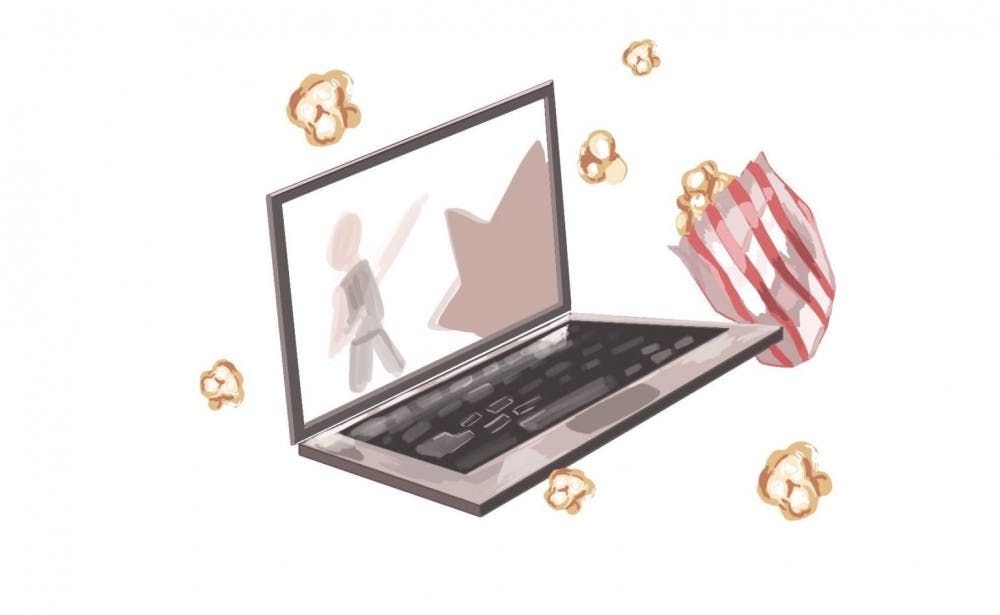Among the many apocalyptic films introduced in the wake of COVID-19, writer-director Cho Il attempted to deliver an alternate perspective on the usual action-packed zombie survival category with his debut film, “#Alive.” But while at first the film seems promising, it eventually fails to escape the cliches of the genre.
The first half of the movie focuses on Oh Joon-woo, a gamer who hides inside his apartment to survive a zombie virus outbreak. Beginning with a snapshot into Joon-woo’s daily life, the film follows its protagonist on a typical morning. As usual, he wakes up late, his parents and sister gone, having left to run errands early that morning. Within only a few minutes, however, his normal routine devolves as he sees an infectious virus spread quickly across the lower floors of his apartment complex, leaving him isolated in the heart of a zombie outbreak. The last text he receives from his mother reads: “My son, you must survive.”
We see days go by as Joon-woo tries to defend his apartment and ration his supplies. He successfully prevents two zombie invasions, and apart from these short, tense, action-packed sequences, much of what we see is just Joon-woo trying to pass the time.
By focusing on the minute details of Joon-woo’s attempts at survival, the movie maps out a storyline that is different from those typical of the survival genre. Instead of employing multiple perspectives — government agents, scientists, civilians, soldiers — that provide a broader picture of the apocalypse and clarify the origin of the zombie outbreak, Cho’s movie redefines the thriller genre by increasing the relatability of the situation. How much would we truly know about what the government was doing if we were in a zombie apocalypse? How much would we care? How would we be able to survive?
In the first few days, Joon-woo plays games on his computer and posts cries for help on Instagram. As days progress, however, when his electricity, water supply and internet are cut off, things become more dire and he sinks into depression. He listens to music and dances around his apartment. He breaks into his dad’s stash of beer, unable to bear being alone.
Joon-woo’s personal troubles navigating his isolation undoubtedly feel poignant for all audiences during the global pandemic. As critic Dan Jackson writes for Thrillest, this movie “has heightened resonance in a year when people all over the globe are experiencing the anxiety and tedium of quarantine.” For University students returning to campus and undergoing Quiet Period, this sentiment may feel particularly personal.
It is the realism of the film — especially in this moment — that makes it genuinely horrifying. We are kept on the edge of our seat as we watch Joon-woo try to make it through each day, holding onto his mantra of “you must survive.” His solitude is saved by the arrival of Kim Yoo-bin, who makes contact with him from the apartment opposite via a laser pointer.
But, here, as the pair communicate with each other and send each other supplies, the movie’s narrative starts to stumble. It makes tentative sense that Yoo-bin and Joon-woo would try to meet up and survive. Yet, when they finally come down from their apartments to meet each other, their ability to fight off an entire zombie horde seems implausible. And, with the introduction of a side character more than three quarters into the movie, the plot development feels unnecessary.
The grassroots experience of the apocalypse is disrupted by the sudden certainty of survival: The pair soon discovers that the government is sending rescue teams to search the areas where survivors had posted their address on social media. While this saving grace would no doubt be welcomed if we were in Joon-woo’s reality, the fact remains that the day-to-day horrors that propelled much of the movie have been abandoned. A solution has arrived, but its simplicity is unsatisfying.
The movie’s foundations are overturned for a happy ending, doing away with the cynicism of survival that it had started with. Even with a hopeful underlying message that “a society atomized by isolation can find a connection” for our modern age, Cho aims too high with his sudden change of pace and transformation of narrative in the second half of the movie.
#Alive almost delivers, but fails to uphold the expectations it sets in the beginning with its conclusion.





